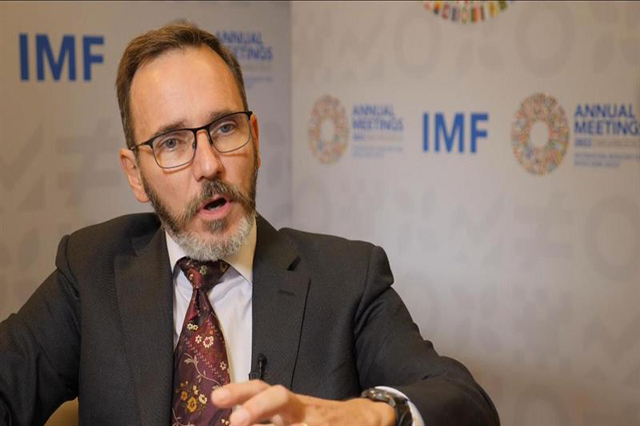
WASHINGTON, April 12, 2023 (BSS/AFP) - The underlying drivers of historically-high global inflation could persist until 2025, the International Monetary Fund's chief economist told AFP on Tuesday.
Prices around the world have surged since the rapid reopening of the global economy after the Covid-19 pandemic. Inflation was further fueled by Russia's invasion of Ukraine last year, which caused commodity prices to spike.
"Inflation is still with us," Pierre-Olivier Gourinchas said in an interview in Washington, shortly after the IMF raised its forecast for inflation this year to seven percent.
Despite an aggressive, concerted, campaign by central banks to slow price increases by raising interest rates, inflation in many countries remain well above the two percent target set by the US Federal Reserve and others.
"Core inflation in particular has not started to come down significantly back towards the target," Gourinchas said, referring to a measure that strips out volatile food and energy prices.
"It probably won't be until the end of 2024, maybe into 2025," he added.
The persistence of core inflation means that central banks may have to keep their interest rates higher for longer, he said.
Such a move would put additional strains on a financial sector already rocked by the dramatic collapse of Californian lender Silicon Valley Bank (SVB) last month.
SVB's fall was swiftly followed by the failure of another US regional lender and the merger under pressure of Swiss investment banking giant Credit Suisse with its regional rival UBS.
Gourinchas said "very forceful intervention" by the Fed, Swiss National Bank and others had helped to tackle the immediate challenges unleashed by SVB's failure, but warned that "pockets" of potential challenges remained.
"We're in a situation where there is elevated levels of nervousness in the market," he said.
An area of concern is the real estate sector, in part due to the slow post-pandemic return to offices in many cities around the world.
Gourinchas warned that there may be other financial institutions like SVB that are over-exposed to interest rate risks, which could cause problems if rates stay high while central banks fight inflation.
Countries without the fiscal tools to help fight inflation could also suffer, Gourinchas warned.
"One should be very vigilant going ahead to make sure that the places that look weak are reinforced, are buttressed," he said.